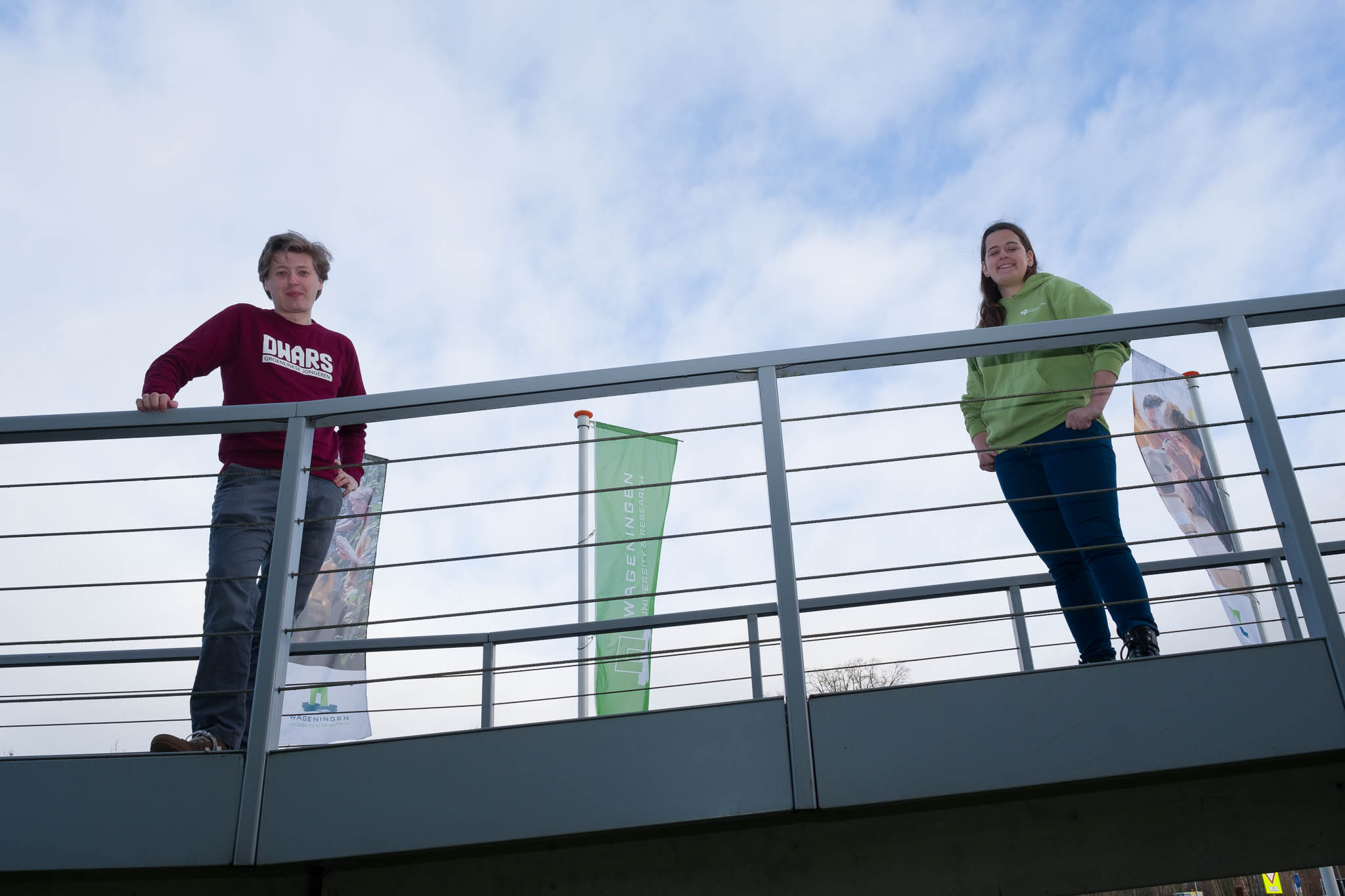WUR students Tessa Tangelder and Joost Gerretschen are members of the youth branches of the political parties D66 and GroenLinks respectively. As the elections of 17 March draw closer, they want to persuade as many young people as they can to vote.
Gerretschen (24) is a Master’s student of Environmental Sciences and chair of the Gelderland branch of DWARS, the youth wing of the green party GroenLinks. He first joined the party four years ago in Zeeland. ‘As part of my Bachelor’s in Liberal Arts and Sciences in Middelburg, I studied Political Science. I still remember how we were discussing the climate crisis in one of the classes. When you read something like the IPCC report, you think: shit, we’re in serious trouble. But I didn’t see that sense of urgency in the municipal or provincial councils. So when I saw a GroenLinks advert and their Facebook page one lunchbreak, I signed up straightaway.’
Tangelder (24) is a Master’s student of Animal Sciences and publicity officer for the Wageningen branch of the Young Democrats (JD), D66’s youth wing. She joined four years ago too. ‘I was looking for a course on public speaking, and I came across a masterclass on it run by JD Amsterdam. I couldn’t attend in the end, but it looked interesting so I went to a JD introductory event where you can get to know the organization. After taking part in courses and activities off and on for a few years, I joined the board at JD Wageningen last year.’
You learn how you can get things done
Political education
‘A political youth organization is a place to meet other people from your area who are involved in politics,’ explains Gerretschen. ‘If you are young and interested in politics, it’s a good place for expanding that interest. The way people talk and think in political circles doesn’t always seem very accessible. In a political youth organization, you get a low-stakes opportunity to learn to operate in that world.’
‘It’s an education in its way,’ adds Tangelder. ‘You don’t start engaging in high-level politics straightaway, but you do learn how you can get things done. It starts small: first you raise an issue in your local JD branch. The JD can then achieve something within D66, perhaps by collecting signatures and handing them to D66 MPs.’ But you don’t necessarily have to have political ambitions to be in the JD, says Tangelder. ‘There are also members who don’t have political ambitions but do want to do something for the community.’
Weekly drinks
Apart from getting things done, political youth organizations are also social networks. Tangelder: ‘Normally, we members of JD Wageningen had a face-to-face activity nearly every week. Because of Covid we don’t have as many activities at the moment, and everything is online. That has its pros and cons. One plus is that speakers who wouldn’t normally come to Wageningen can join us online. But one of the down sides is that students who study online all day don’t feel much like more online activities in the evening.’
‘Before Covid, there was a DWARS activity every week in a town in Gelderland,’ says Gerretschen. ‘Those activities often combined a training course or a speaker with a drinks party. One week you went to Nijmegen, the next to Arnhem, Apeldoorn or Wageningen. It isn’t as nice online: you want to be able to look each other in the eye and shake hands.’
There were 200 of us at the market in Arnhem
Talking to MPs
For Gerretschen, the high point for DWARS Gelderland was last September. ‘There were 200 of us at the market in Arnhem, there to draw attention to the situation in Moria refugee camp.’
‘For me the high points of the past year were discussions with councillors and MPs,’ says Tangelder. ‘Like talking to Tjeerd de Groot, an MP for D66, about agricultural policy and the nitrogen crisis. You can ask whatever you want, and you get real answers, so you can get a picture of all that goes on behind the scenes – the things that don’t get said in public.’
Campaigning in Covid times
Both students hope that the Covid situation will have improved by the election date, so that they can campaign on the streets. Gerretschen: ‘We usually stand at stations and campaign door-to-door. This year we are trying to be more visible online, with videos by local politicians, for instance. Whether online or offline, we hope to persuade young people to vote.’
Tangelder: ‘Our emphasis is more on getting young people to vote than on who they vote for. We want young people to be well-informed and to vote for the party and the candidate that is the best match with their views.’ Gerretschen: ‘Young people are usually more progressive than older people, but fewer of them vote. It is our aim to make them aware that their votes count.’
If you are a WUR student and member of another political party’s youth branch, we’d like to hear your views below this article!

 Joost Gerretschen (DWARS, part of GroenLinks) and Tessa Tangelder (JD, part of D66). Photo: Guy Ackermans
Joost Gerretschen (DWARS, part of GroenLinks) and Tessa Tangelder (JD, part of D66). Photo: Guy Ackermans